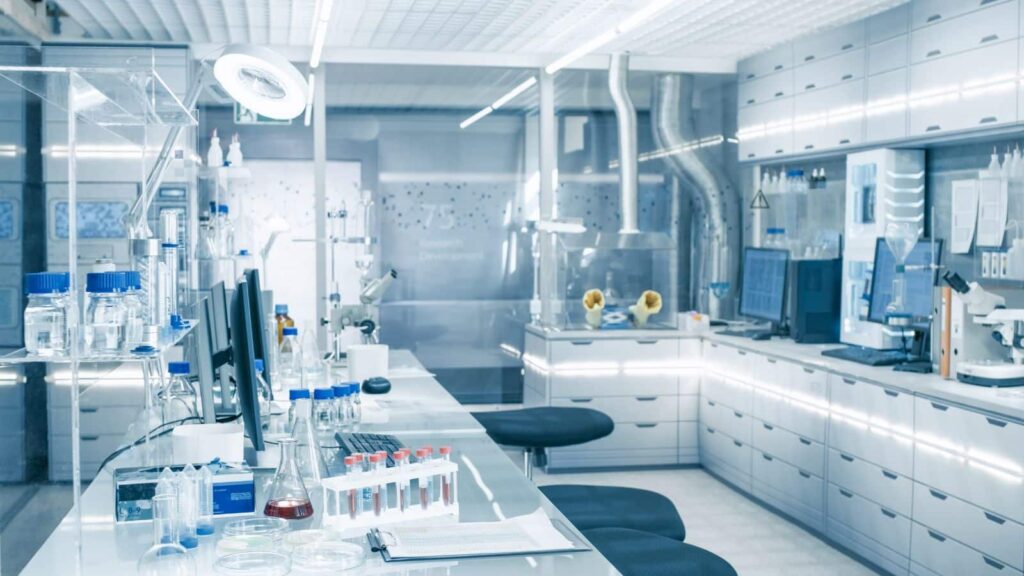Toxicology involves a scientific study of the adverse effects of chemical substances on living organisms. A toxicology lab is crucial in detecting and understanding the potential hazards associated with various chemicals, drugs, and environmental pollutants. A well-equipped toxicology lab is needed to interpret the toxicological data analysis accurately.
Before you start a new toxicology laboratory, check https://completelabsystems.com/. It is a one-stop solution for buying robust laboratory instruments and integrated solutions.
Setting up a Toxicology Lab
Setting up a toxicology lab needs –
- Careful planning
- Consideration of the specific objectives
- Scope of the research.
Whether the focus is on drug development, environmental monitoring, or forensic investigations, specific instruments and tools are fundamental to the success of any toxicology lab.
Essential tools and instruments
-
Analytical Instruments
- Gas Chromatography-Mass Spectrometry (GC-MS): This powerful analytical tool is essential for separating and identifying volatile compounds. Toxicology labs use GC-MS for analysing drugs, poisons, and environmental pollutants.
- Liquid Chromatography-Mass Spectrometry (LC-MS): LC-MS is instrumental in analyzing various compounds, including pharmaceuticals, toxins, and metabolites. It helps to identify and compute susceptible substances in complex samples.
- Inductively Coupled Plasma-Mass Spectrometry (ICP-MS): ICP-MS is vital for the detection and quantification of trace elements and heavy metals, mainly present in water, soil, and biotic samples.
-
Molecular Biology Tools
- Polymerase Chain Reaction (PCR): PCR is crucial for the augmentation of DNA. It allows the detection and identification of genetic markers related to toxicity or drug metabolism.
- Real-time PCR (qPCR): qPCR enables the quantitative measurement of gene expression. It provides valuable insights into the molecular mechanisms underlying toxic responses.
-
Cell Culture Equipment
- CO2 Incubators: Essential for maintaining cell viability and enabling the growth of cell lines for in vitro toxicity studies.
- Microscopes: High-quality microscopes are crucial for observing cell morphology and changes in cellular structure due to exposure to toxic substances.
-
Sample Preparation Tools
- Centrifuges: Used for separating components in a sample based on density, critical for preparing biological samples for analysis.
- Extraction Equipment: Techniques like solid-phase extraction and liquid-liquid extraction are essential for isolating and concentrating target compounds from complex matrices.
-
Safety Equipment
- Fume Hoods: Provide a safe environment for handling hazardous chemicals, preventing exposure to toxic fumes.
- Personal Protective Equipment (PPE): Lab coats, gloves, goggles, and respirators are essential to protect researchers from potential chemical hazards.
-
Data Analysis Software
- Statistical Software: Programs like R or SPSS are crucial for analysing and interpreting toxicological data, facilitating meaningful conclusions from experimental results.
- Chemoinformatics Tools: Software that aids in analyzing chemical data, assisting in identifying potential toxic compounds.
Conclusion
Establishing a toxicology lab requires careful consideration of the research goals and the scope of analysis. The mentioned instruments and tools help to build a comprehensive toxicology lab capable of conducting cutting-edge research in –
- Drug development
- Environmental monitoring
- Forensic investigations
As technology progresses, you must stay informed about the latest developments in toxicological instrumentations. It will help you maintain your lab’s effectiveness and significance in the ever-evolving field of toxicology.


